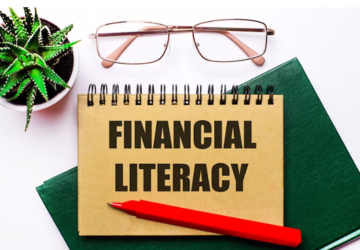Reading financial books is essential for individuals wanting financial success and security. These books offer valuable insights into managing money, investing wisely, and creating wealth. The Top 10 Best Financial Books to Read in 2023 list has been compiled based on expert recommendations, reader reviews, and their impact on personal finance. The list includes books such as "The Psychology of Money" by Morgan Housel, "Rich Dad Poor Dad" by Robert Kiyosaki, and "The Simple Path to Wealth" by JL Collins, among others. These books provide practical advice and strategies to help readers make informed financial decisions and achieve their financial goals.
"The Psychology of Money" by Morgan Housel
"The Psychology of Money" by Morgan Housel is an insightful book that examines the relationship between individuals and their finances. The book delves into the psychological factors that shape our financial decisions and explores how we can use this knowledge to improve our financial well-being. Housel covers a range of topics, including the impact of emotions on our financial choices, the importance of having a financial plan, and the benefits of long-term thinking. Key takeaways from the book include the value of patience, the need to embrace uncertainty, and the benefits of living below your means. This book is highly recommended for anyone looking to gain a deeper understanding of personal finance and how to make smarter financial decisions.
"The Intelligent Investor" by Benjamin Graham

"The Intelligent Investor" of Benjamin Graham is a classic investment book that offers practical advice and wisdom for individuals seeking to build wealth. The book provides an overview of value investing, a philosophy that emphasizes the importance of buying stocks at a discounted price relative to their intrinsic value. Graham emphasizes the need for a long-term investment approach and the importance of performing thorough research before investing. Key takeaways from the book include the need to have a margin of safety when investing, the importance of diversification, and the value of patience in the stock market. This book is ideal for investors of all levels, from beginners to experienced professionals looking to sharpen their investment skills.
"Rich Dad Poor Dad" by Robert Kiyosaki
"Rich Dad Poor Dad" of Robert Kiyosaki is a personal finance classic that challenges conventional thinking about wealth and income. The book tells the story of Kiyosaki's two fathers, one who was a highly educated government employee and the other a successful entrepreneur. Kiyosaki uses these two figures to illustrate the importance of financial education and the benefits of taking risks and investing in assets that generate passive income. Outcomes from the book include the importance of building assets that generate income, the value of financial literacy, and the need to take calculated risks in pursuit of financial success. This book is recommended for anyone looking to develop a financial mindset and improve their personal finances.
"The Millionaire Next Door" by Thomas J. Stanley and William D. Danko
"The Millionaire Next Door" by Thomas J. Stanley and William D. Danko is a book that explores the characteristics and habits of self-made millionaires. The authors conducted extensive research and interviews with millionaires to uncover their secrets to financial success. The book emphasizes the importance of living below your means, investing wisely, and avoiding consumer debt. Key takeaways from the book include the value of frugality and discipline in managing money, the benefits of entrepreneurship and self-employment, and the need to prioritize long-term financial goals over short-term gratification. This book is recommended for anyone seeking to improve their financial habits and develop a millionaire mindset.
"The Simple Path to Wealth" of JL Collins
"The Simple Path to Wealth" of JL Collins is a book that provides practical advice for individuals seeking to achieve financial independence. The book emphasizes the importance of living below your means, avoiding debt, and investing in low-cost index funds. Collins encourages readers to focus on the long-term and to develop a simple, sustainable investment strategy. Key takeaways from the book include the benefits of investing in low-cost index funds, the importance of avoiding market timing and speculation, and the value of embracing simplicity and frugality in managing finances. This book is recommended for anyone seeking a straightforward and effective approach to building wealth and achieving financial freedom.
"The Total Money Makeover" by Dave Ramsey
"The Total Money Makeover" of Dave Ramsey is a practical guide to achieving financial freedom and security. The book provides a step-by-step plan for eliminating debt, building an emergency fund, and investing for the future. Ramsey emphasizes the importance of creating a budget, living below your means, and avoiding debt. The book also provides guidance on how to build wealth through investing in mutual funds and real estate. Key outcomes from the book include the importance of being intentional with your money, the need to develop a solid financial plan, and the benefits of avoiding debt and living frugally. This book is recommended for anyone seeking a comprehensive and practical guide to improving their financial situation.
"Your Money or Your Life" of Vicki Robin and Joe Dominguez
"Your Money or Your Life" of Vicki Robin and Joe Dominguez is a classic personal finance book that challenges readers to rethink their relationship with money and to pursue a more fulfilling life. The book provides a nine-step program for achieving financial independence, emphasizing the importance of reducing expenses, increasing income, and saving aggressively. The authors also emphasize the need to align one's financial goals with their values and priorities and to pursue a simpler, more meaningful lifestyle. Key takeaways from the book include the value of tracking your expenses, the benefits of saving aggressively and investing in income-producing assets, and the importance of aligning your spending with your values. This book is recommended for anyone seeking a transformative and holistic approach to personal finance.
"The Little Book of Common Sense Investing" of John C. Bogle
"The Little Book of Common Sense Investing" of John C. Bogle is a concise and informative guide to investing in low-cost index funds. The book argues that most investors would be better off putting their money in broad-based index funds instead of actively managed funds. Bogle explains the advantages of index funds, including their low fees, broad diversification, and consistent performance. He also discusses the pitfalls of active management, such as high fees, underperformance, and excessive trading. Key outcomes from the book include the importance of keeping costs low, the value of diversification, and the benefits of a long-term investment strategy. If you're looking to understand more about index fund investing and prefer a low-cost, hands-off investment strategy, this book comes highly recommended.
"Money Master the Game" by Tony Robbins

"Money Master the Game" of Tony Robbins is a comprehensive guide to personal finance and investing. The book features interviews with some of the most successful investors in the world, providing insights into their investment strategies and philosophies. Robbins also covers a wide range of financial topics, including budgeting, saving, debt management, and retirement planning. Key outcomes from the book include the importance of having a long-term investment strategy, the value of diversification, and the benefits of compound interest. This book is recommended for anyone seeking a comprehensive and practical guide to personal finance and investing, as well as for those interested in learning from the experiences of successful investors.
"The Richest Man in Babylon" of George S. Clason
"The Richest Man in Babylon" of George S. Clason is a timeless classic that provides practical financial advice through parables set in ancient Babylon. The book shares the secrets of the wealthy through the story of Arkad, the richest man in Babylon.
Key outcomes from the book include the importance of saving at least 10% of your income, investing wisely, avoiding debt, and seeking advice from those who are successful in their field. The book emphasizes the power of compound interest and the need to develop sound financial habits.
"The Richest Man in Babylon" is a must-read for anyone seeking financial freedom and success. Regardless of whether you are new to your field or have years of experience, the lessons from this book can be applied to your life today. This book offers a timeless message that remains relevant in today's fast-paced world.


